Click here and press the right key for the next slide.
(This may not work on mobile or ipad. You can try using chrome or firefox, but even that may fail. Sorry.)
also ...
Press the left key to go backwards (or swipe right)
Press n to toggle whether notes are shown (or add '?notes' to the url before the #)
Press m or double tap to slide thumbnails (menu)
Press ? at any time to show the keyboard shortcuts
Question Session 04
this is being recorded
Steve
Was there anything you noticed in the essays that you want to mention here?
habitual action
habitual process





‘a habitual--goal-directed spectrum’
Keramati, Smittenaar, Dolan, & Dayan (2016)
Steve
Can you offer a conclusion to Part I?
[action] Which events in your life are your actions?
[joint action] What distinguishes doing something jointly with another person from acting in parallel with them but merely side by side?
two perspectives
What distinguishes your actions from things that merely happen to you? (‘The Problem of Action’)
Standard Solution: actions are those events which stand in an appropriate causal relation to an intention.
Alternative Solution: actions are those events which stand in an appropriate causal relation to a motor representation.
Objection 1
habitual processes
Some actions run counter to any of the agent’s intentions because they are dominated by habitual processes.
Objection 2
motor processes
Invoking motor representations yields a solution to the problem of action that is no worse than the Standard Solution.
Just The Beginning


compatible stories about different things?
contradictory stories about one thing?
aspects of a single larger story?
habitual processes, motivation, affect, reasons, knowledge, experience, autonomy, control, attention, agency ...?
[action] Which events in your life are your actions?
[joint action] What distinguishes doing something jointly with another person from acting in parallel with them but merely side by side?
two perspectives

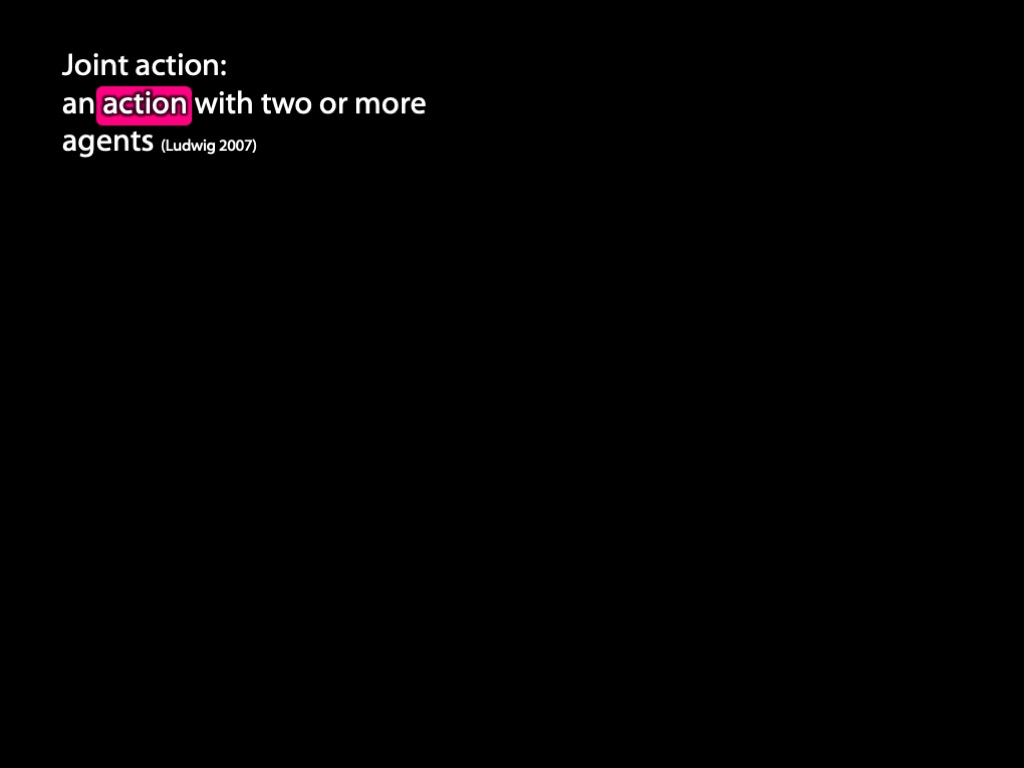

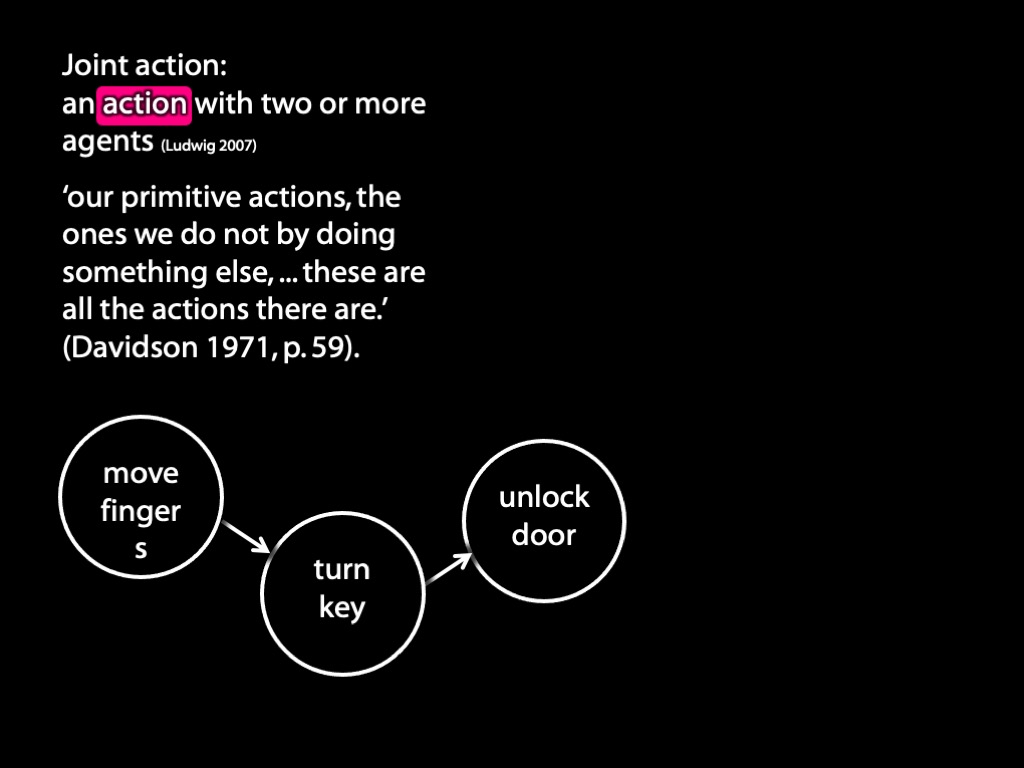
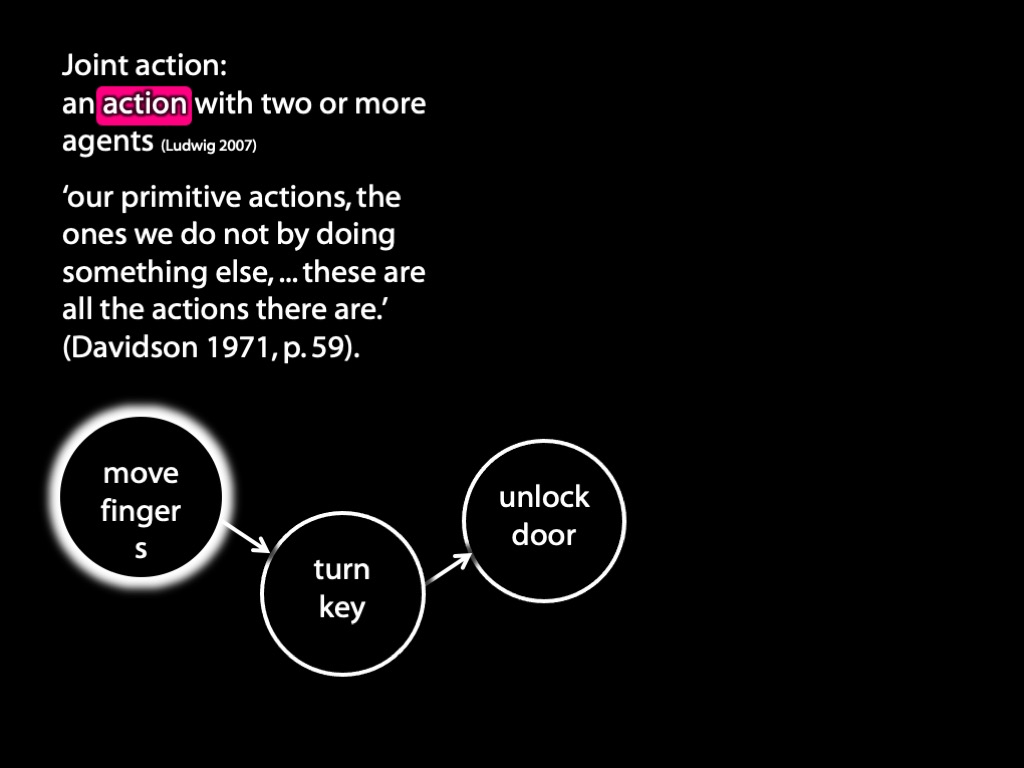
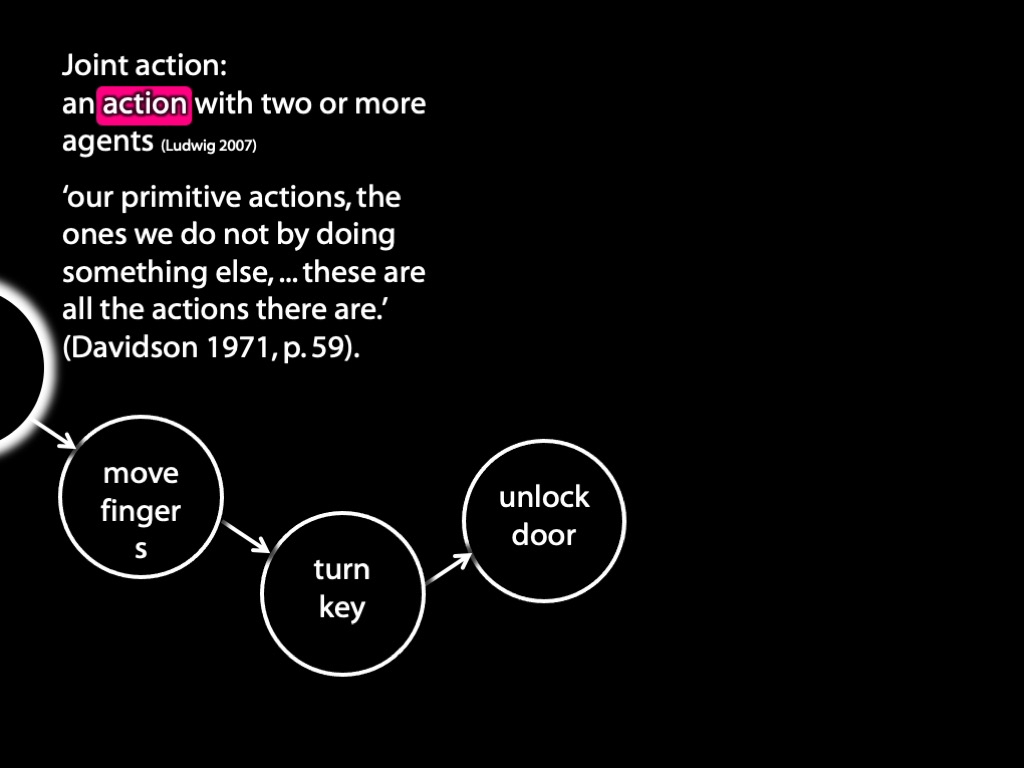
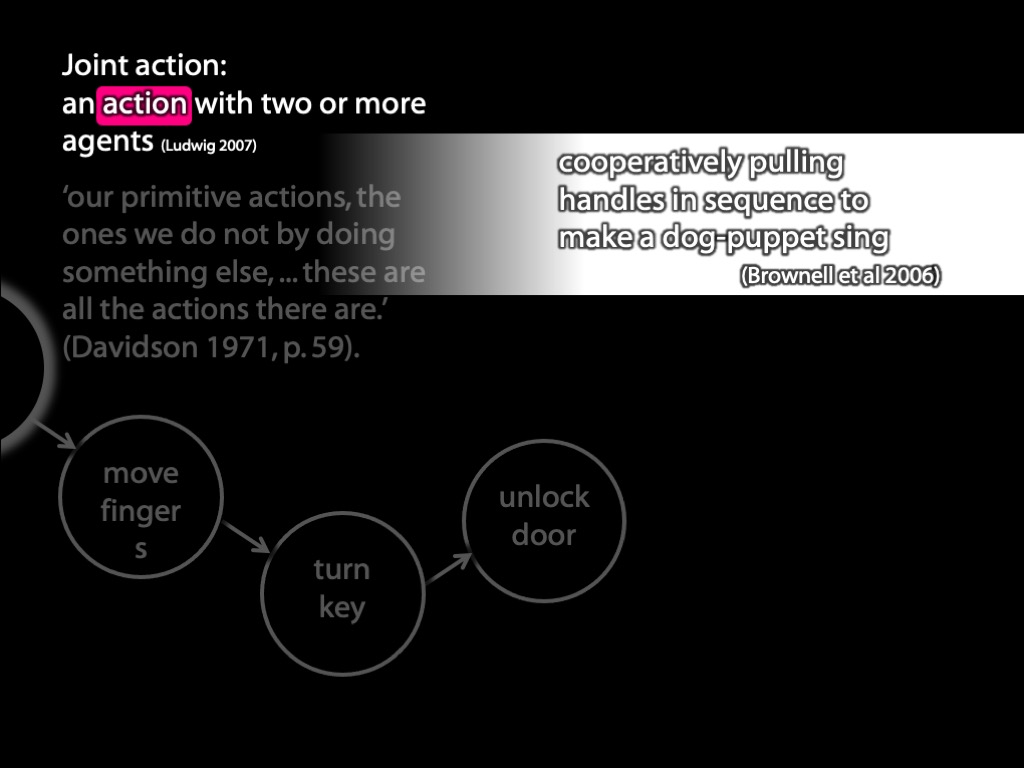
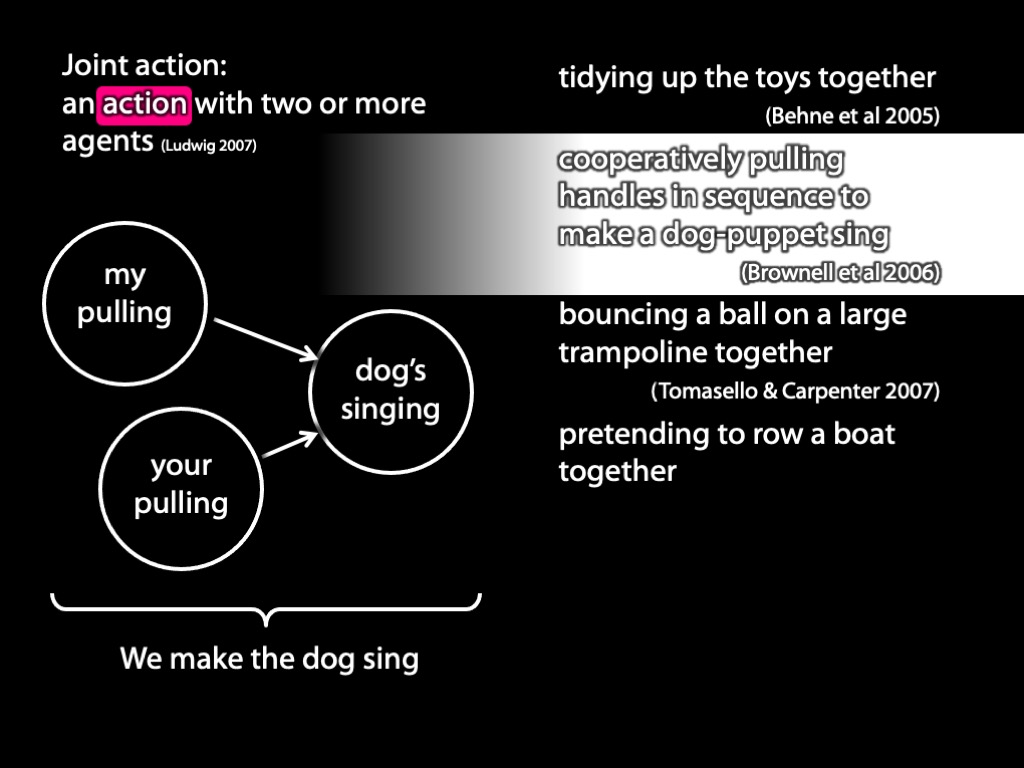
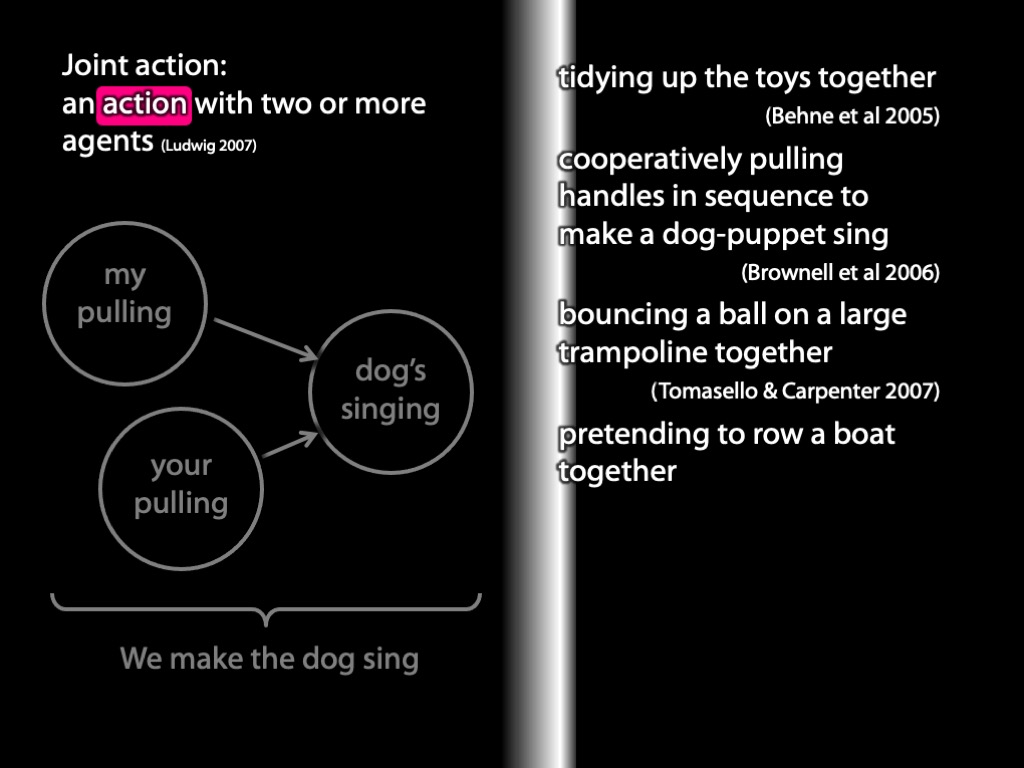
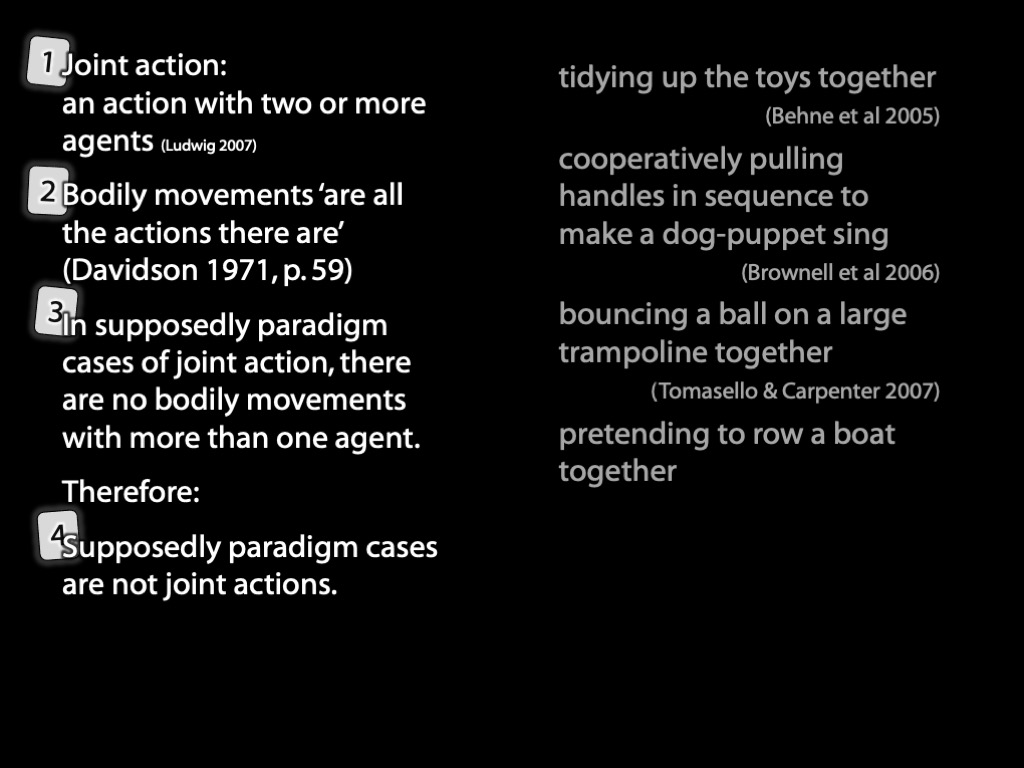
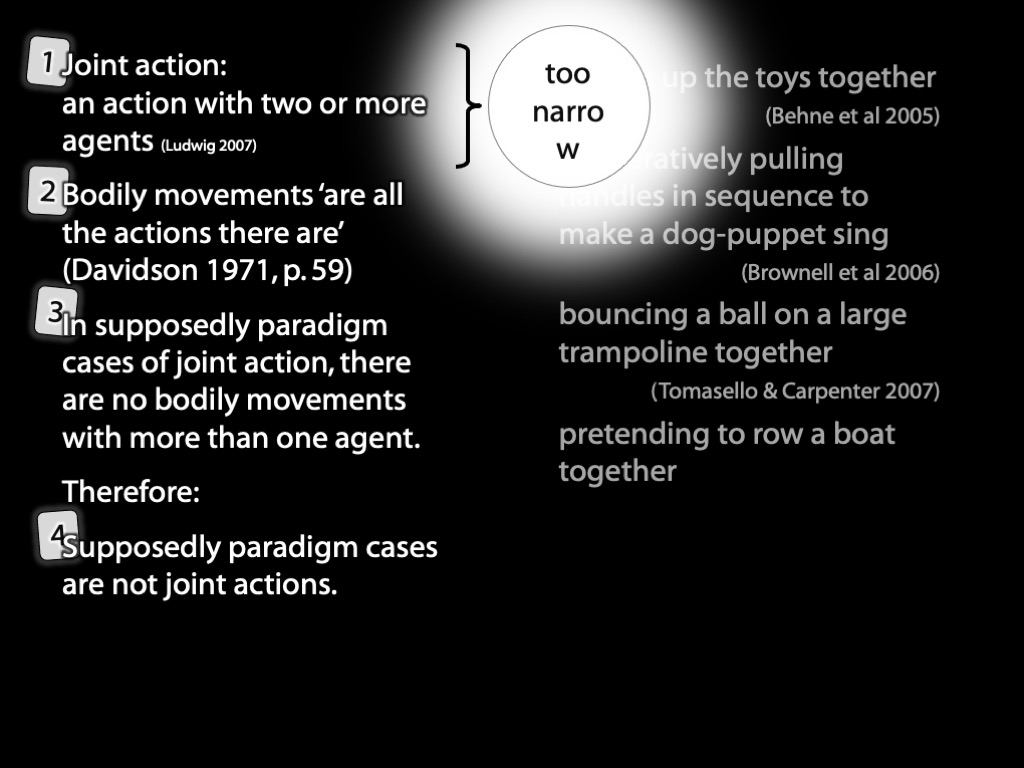
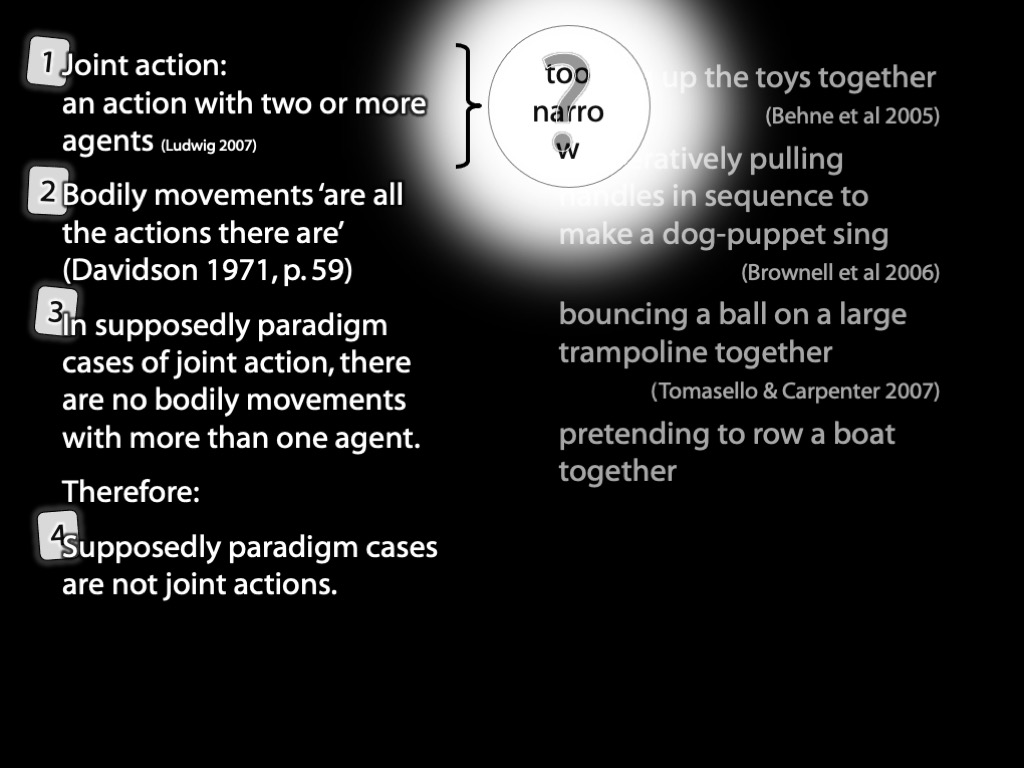
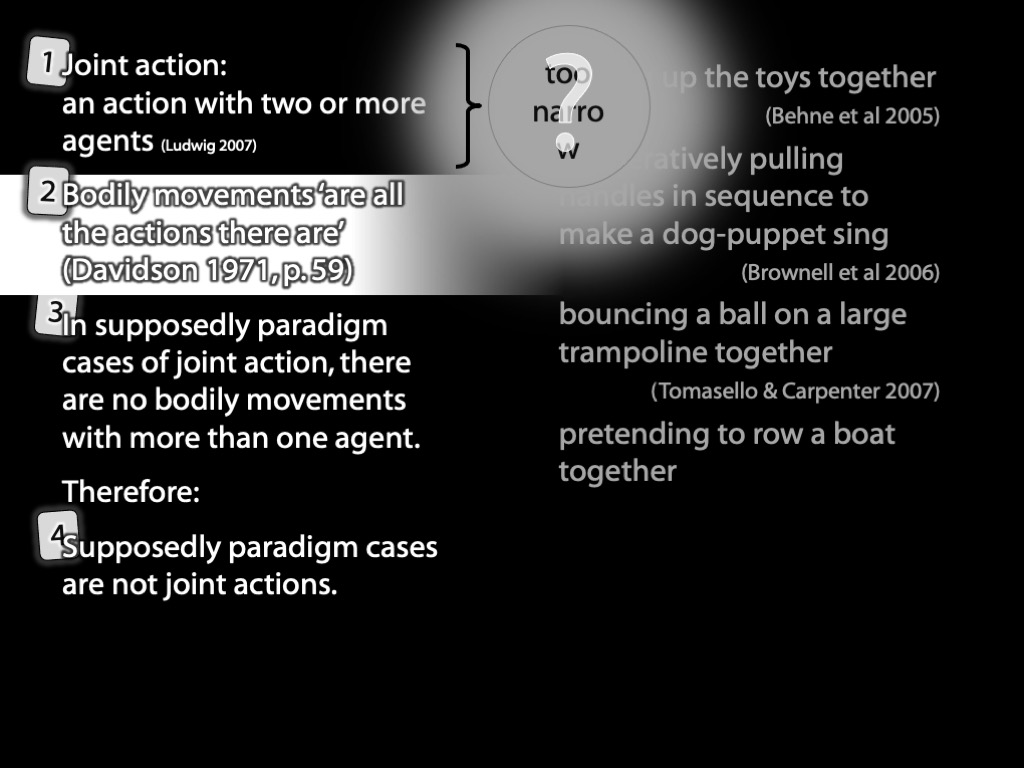
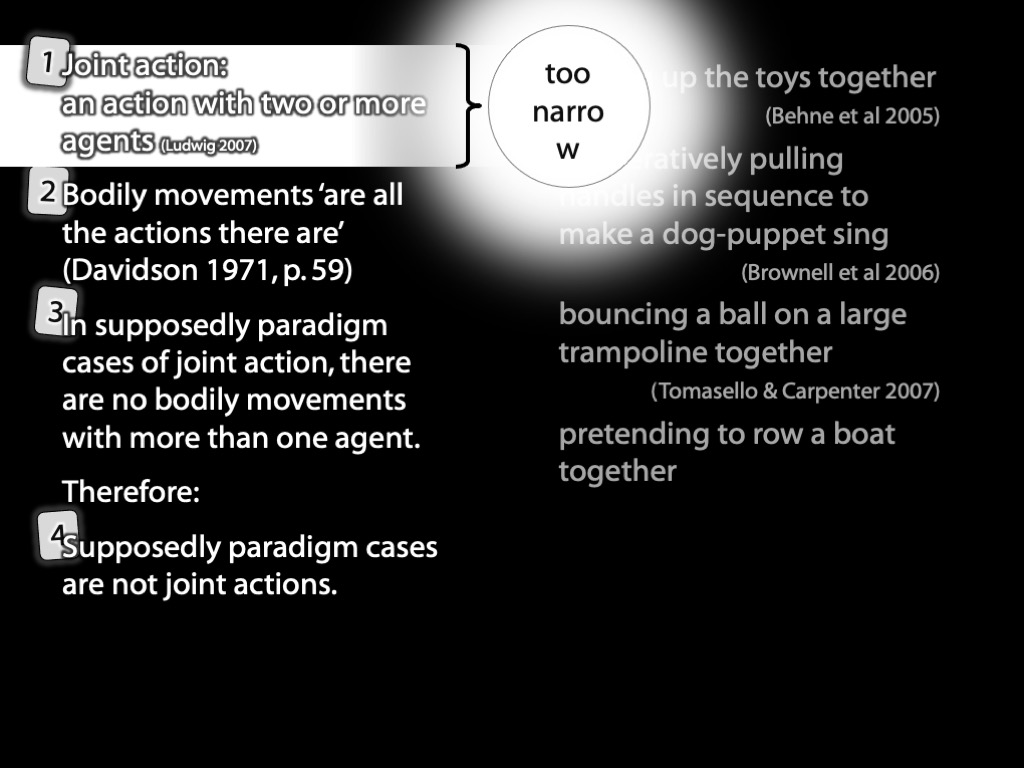
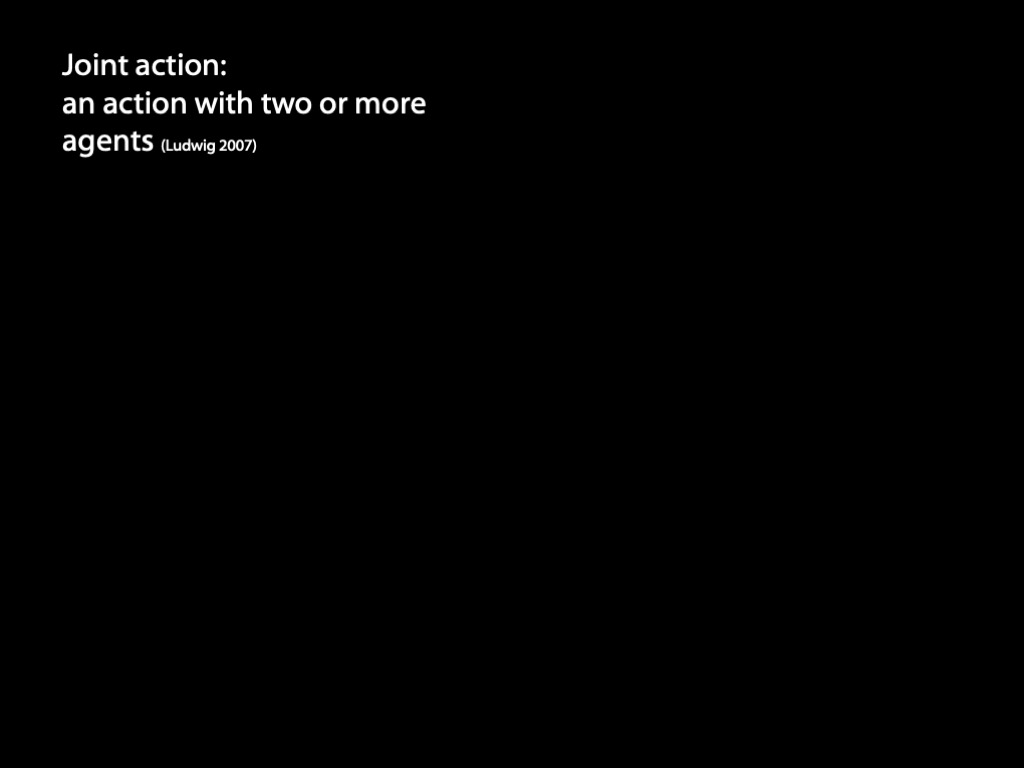
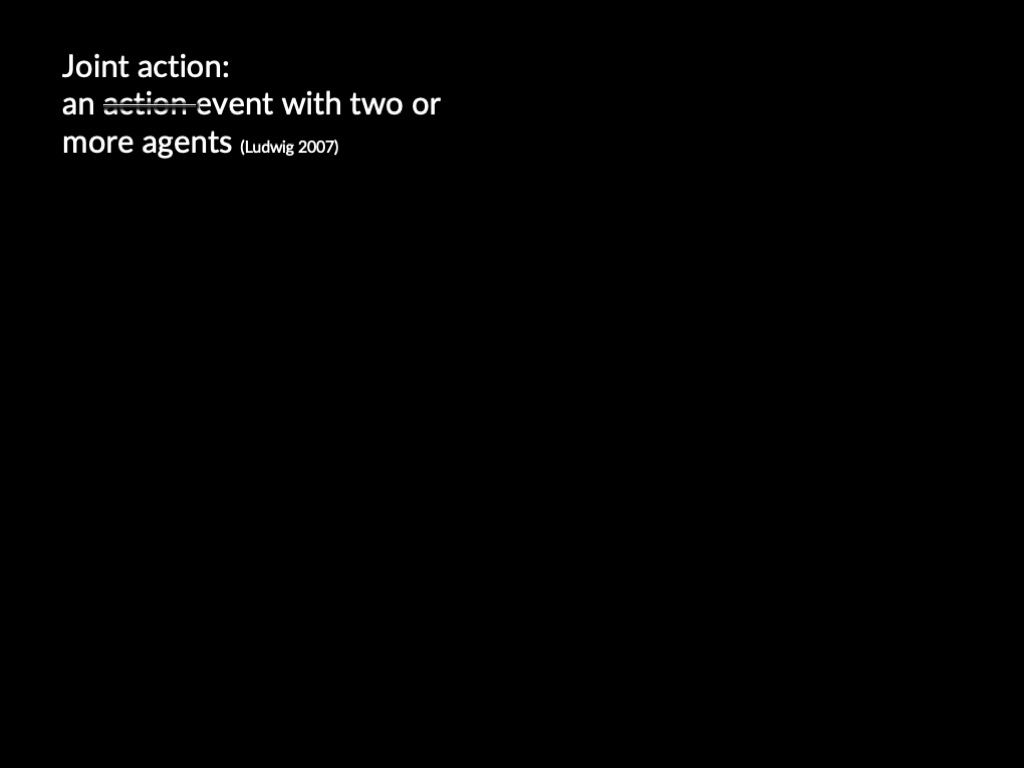
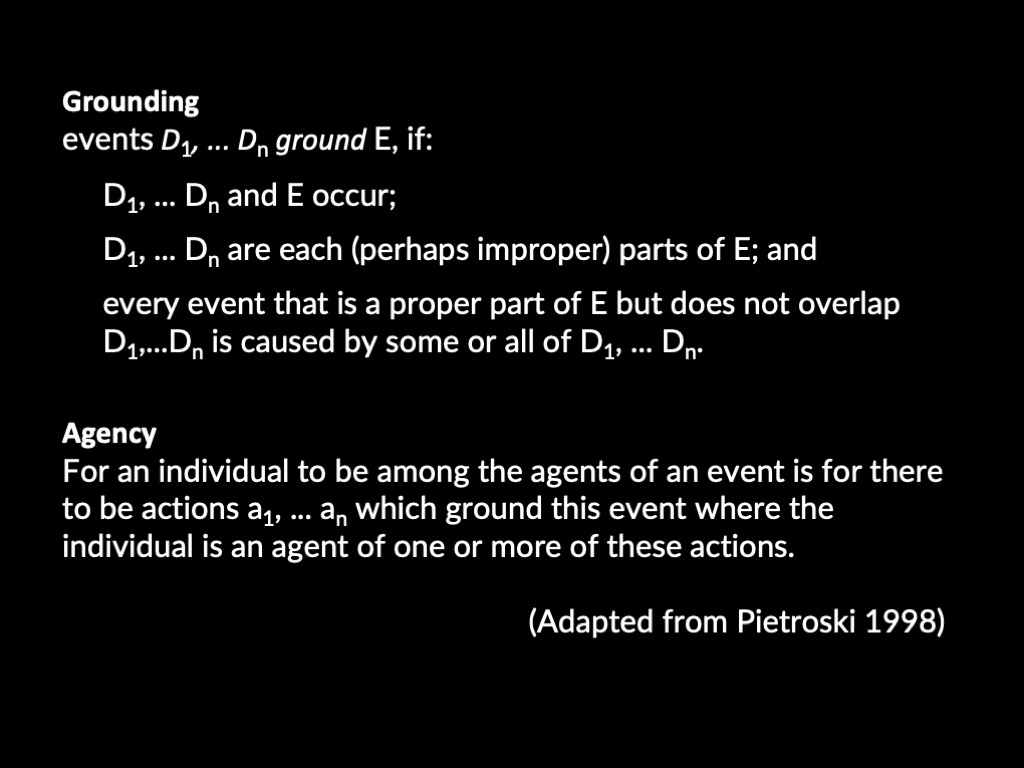
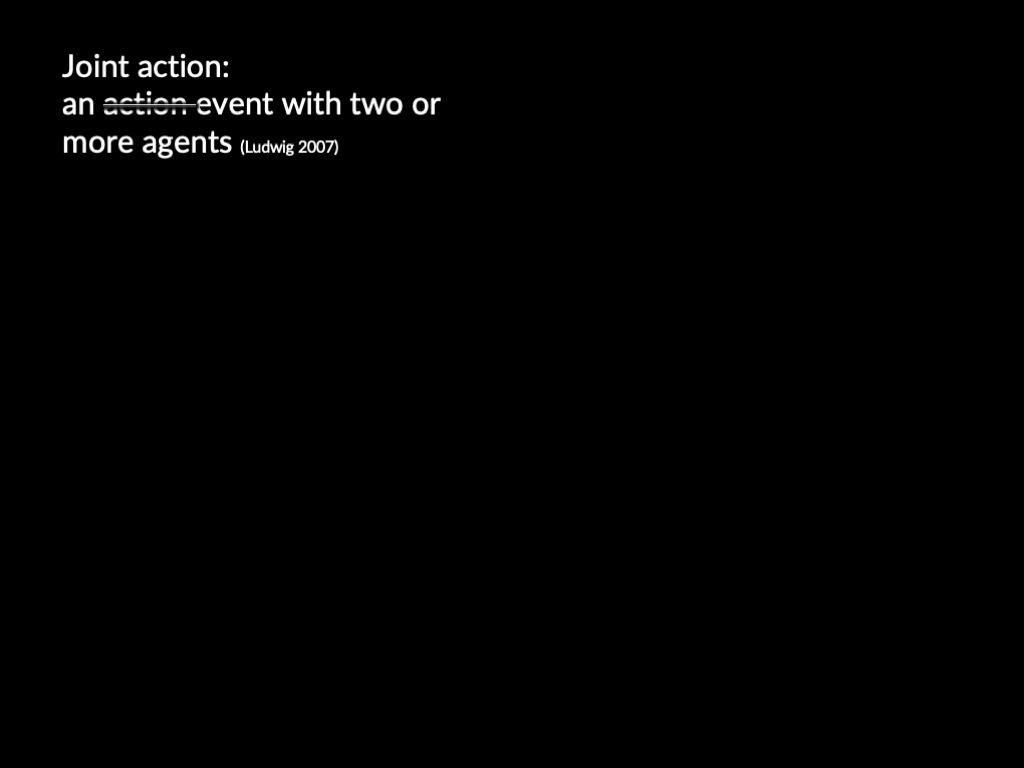
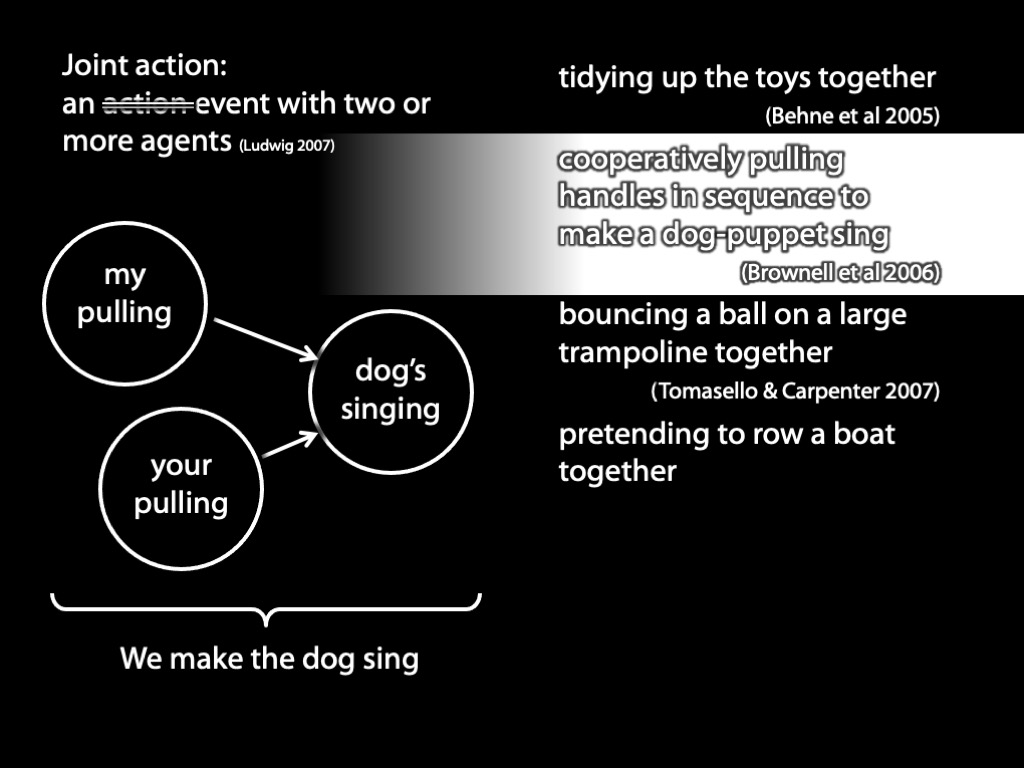
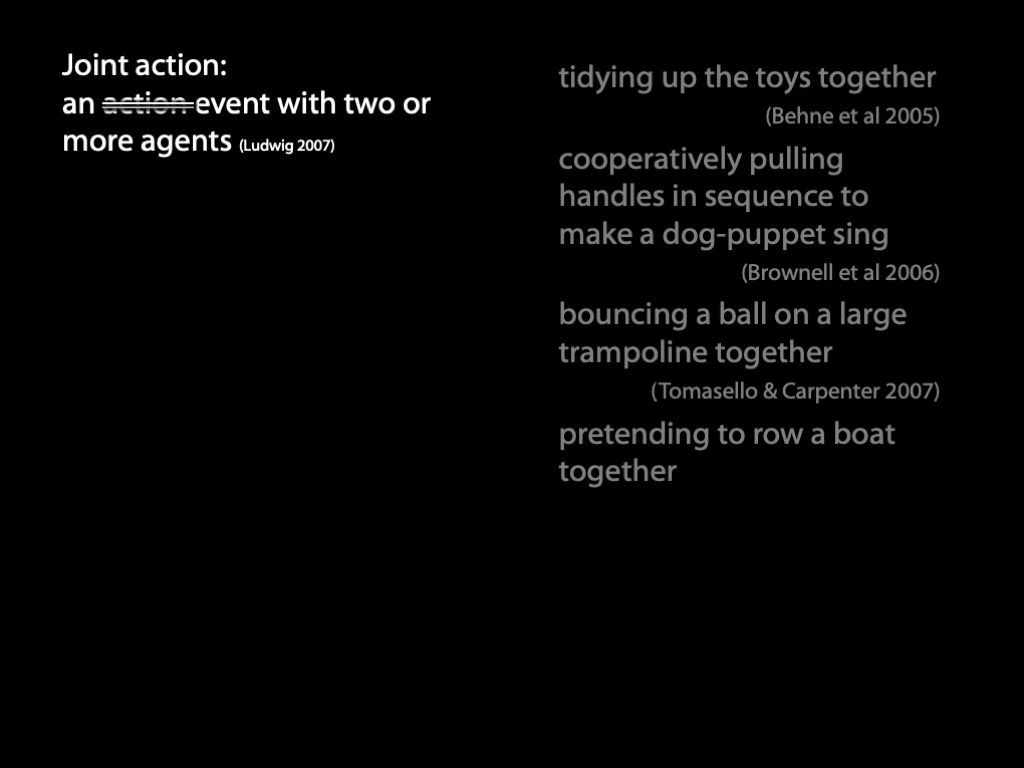
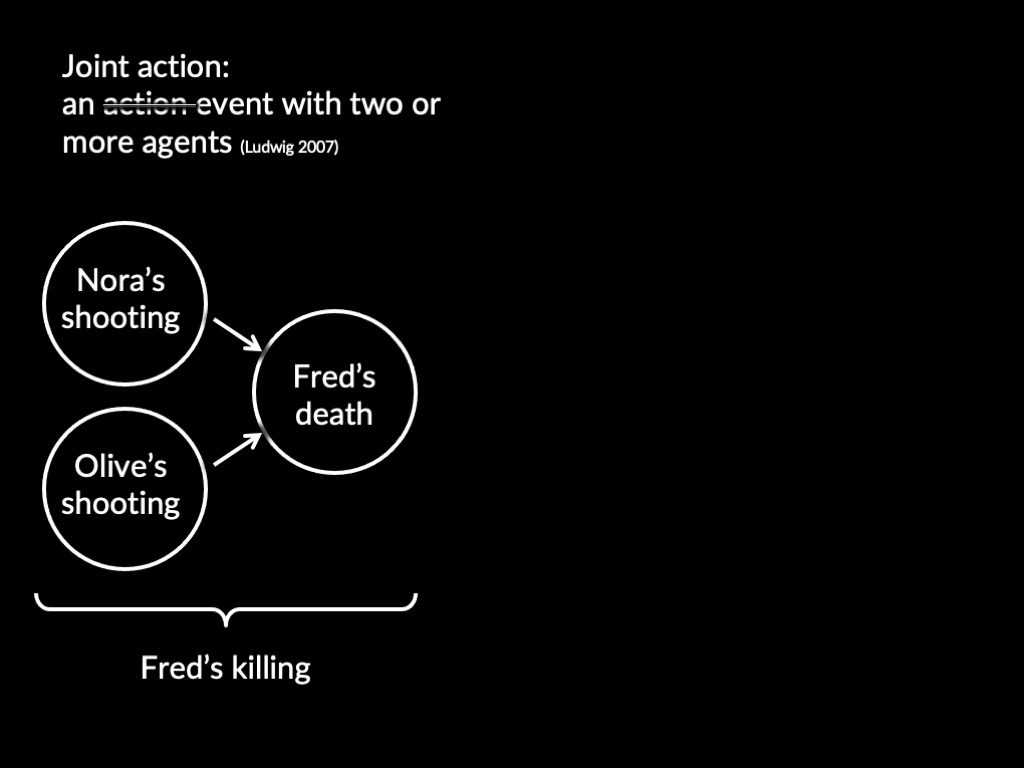
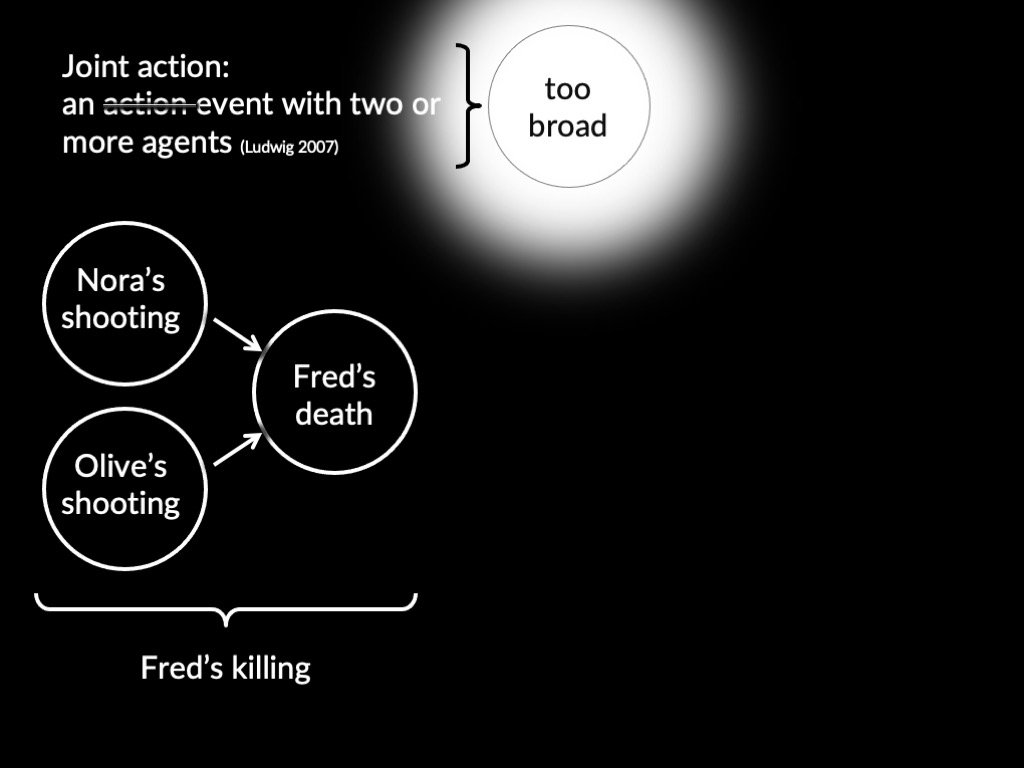





[action] Which events in your life are your actions?
[joint action] What distinguishes doing something jointly with another person from acting in parallel with them but merely side by side?
two perspectives
more questions?
